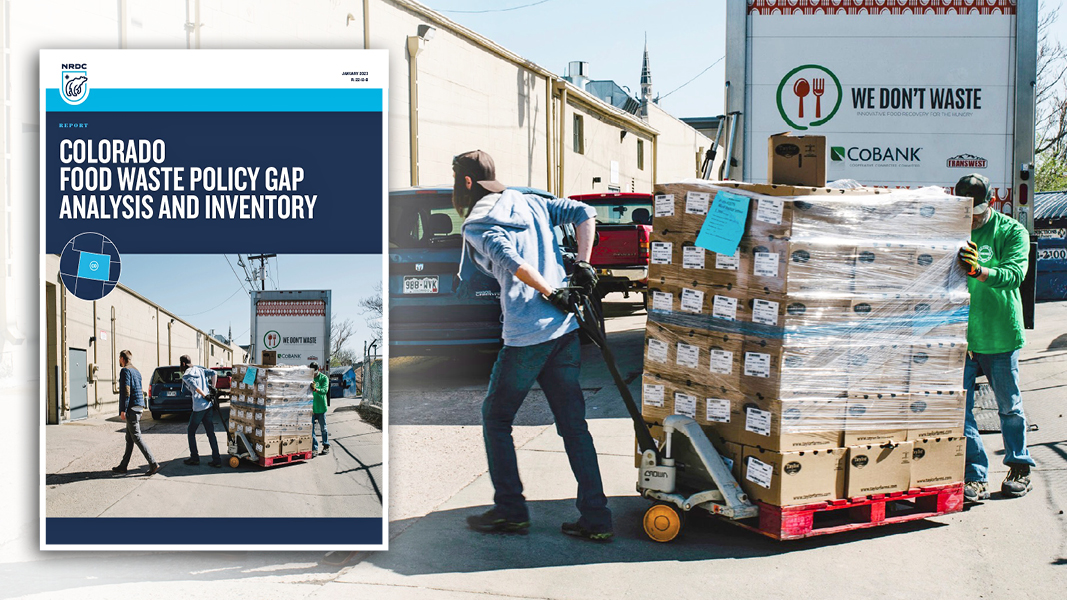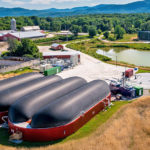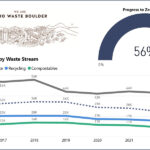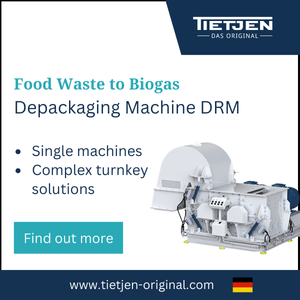Top: Image courtesy of NRDC
NRDC released its “Colorado Food Waste Policy Gap Analysis And Inventory” in January 2023, adding to similar analyses done in 12 states in the Mid-Atlantic, Southeast and Midwest in 2021. Prepared by the Center for EcoTechnology, the Harvard Food Law & Policy Clinic and BioCycle Connect, LLC, the report comprises a gap analysis that identifies policy opportunities for furthering food waste reduction, and a detailed inventory of food waste-related policies in Colorado. Categories assessed represent areas across the food recovery hierarchy and include: organics disposal bans and recycling laws; date labeling; food donation liability protections; tax incentives for food rescue; organics processing infrastructure permitting; compost procurement; food safety policies for share tables; food systems plans, goals, and targets; plans targeting solid waste; climate action goals; and grants and incentive programs related to food waste reduction. The goal of the state reports is to equip NRDC Food Matters city partners with a comprehensive overview of their state’s respective policy landscape and how it helps and/or hinders efforts to reduce food waste.
Highlights of the inventory and analysis for Colorado include:
- Weak Policy designation for date labeling, since the state has not established dual date labeling systems that clearly distinguish between quality and safety, and a Weak Policy designation for food donation liability protection because although it has a state-specific liability protection law for food donation, its protections are no more inclusive than the federal level liability protections. The state’s tax incentives to offset costs associated with food donation ended in 2022, thus Colorado is designated as having No Policy in this category.
- No Policy for an organics disposal ban or mandatory recycling law as none exists. However, the city of Boulder, Colorado, has implemented a Universal Zero Waste Ordinance that lays the groundwork by requiring that all properties in the city have separated organic waste, recycling, and trash service. This policy has increased organics recycling rates but also has increased contamination, which in turn has impacted marketability of the finished compost. In the summer of 2022, in order to reduce contamination, Boulder allowed businesses to remove front-of- house organics collection; businesses retaining customer-facing collection must demonstrate that trained staff monitor and remove contaminants from customer-facing bins before incorporation into collection containers.
- Weak Policy designation for organics processing infrastructure permitting regulations. The Colorado Department of Public Health & Environment (CDPHE) has tiered regulations for organics processing infrastructure. Food waste and other source separated organics are categorized as Type 2 feedstocks. The regulations have two exemption tiers — general and conditional — and three classes of composting facilities. Facilities composting Type 2 feedstocks from off site for a tipping fee fall into Class III, the most restrictive regulatory tier; this class also includes mixed municipal solid waste and biosolids, which in many states are in a separate tier from food waste and source separated organics. Anaerobic digestion of solid waste, e.g., food waste, is regulated under the composting rules as well as in other sections of the state’s solid waste regulations, e.g., Section 9 impoundment rules for storage of digestate and Section 11 covering waste-to-energy equipment components.
- Weak Policy for compost procurement, as no compost procurement program is in place for state or local agencies. The Colorado Department of Transportation (CDOT) has specifications for compost use in CDOT highway and bridge construction projects, but use of compost is not required. Legislation passed in 2020 (SB20-055), titled “Incentivize Development Recycling End Markets,” creates the structure for a recycling market development center. Compostable organics are among the materials targeted for recycling and recycling market development.
NRDC’s state food waste policy reports can be downloaded at this link.













